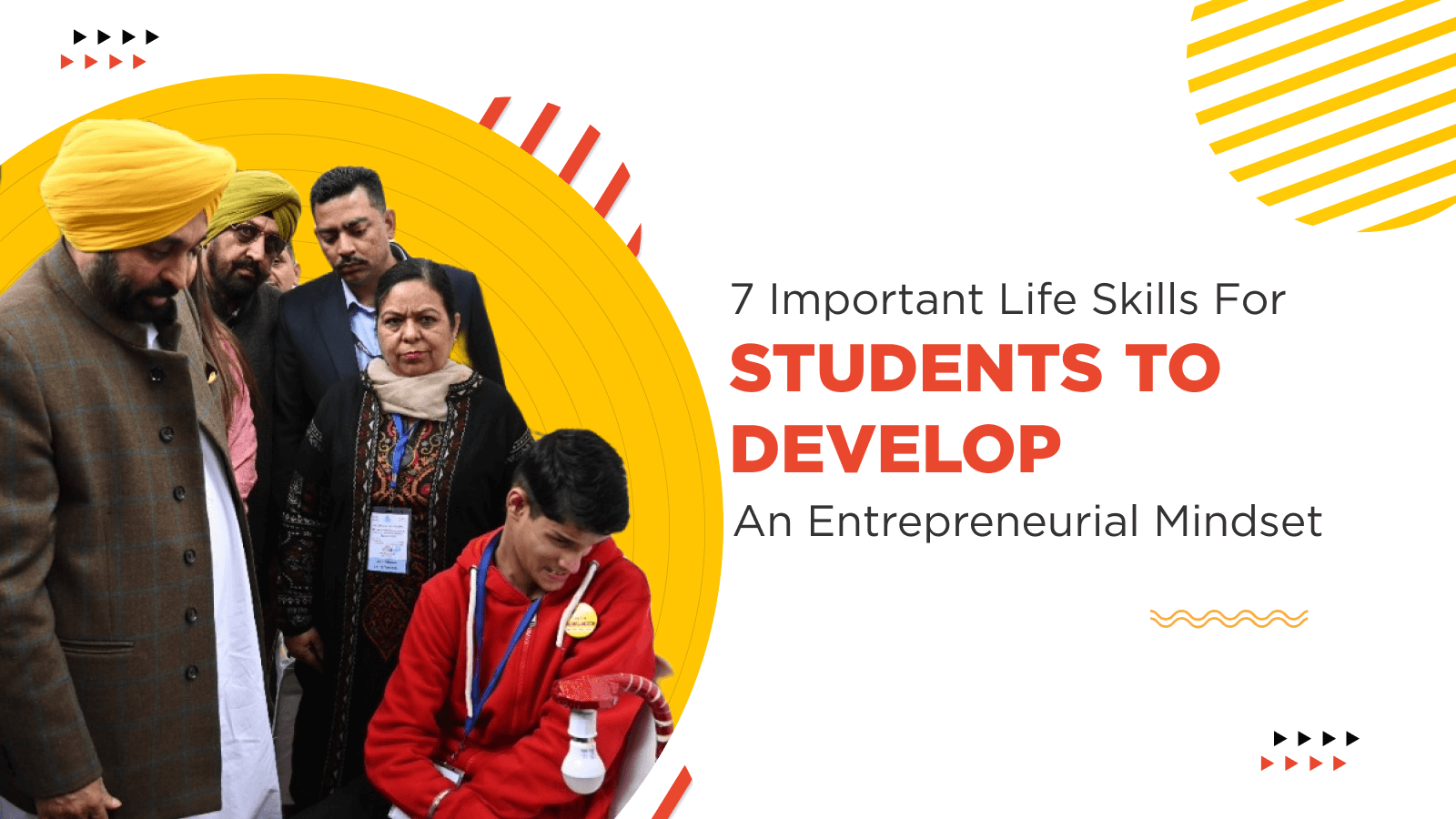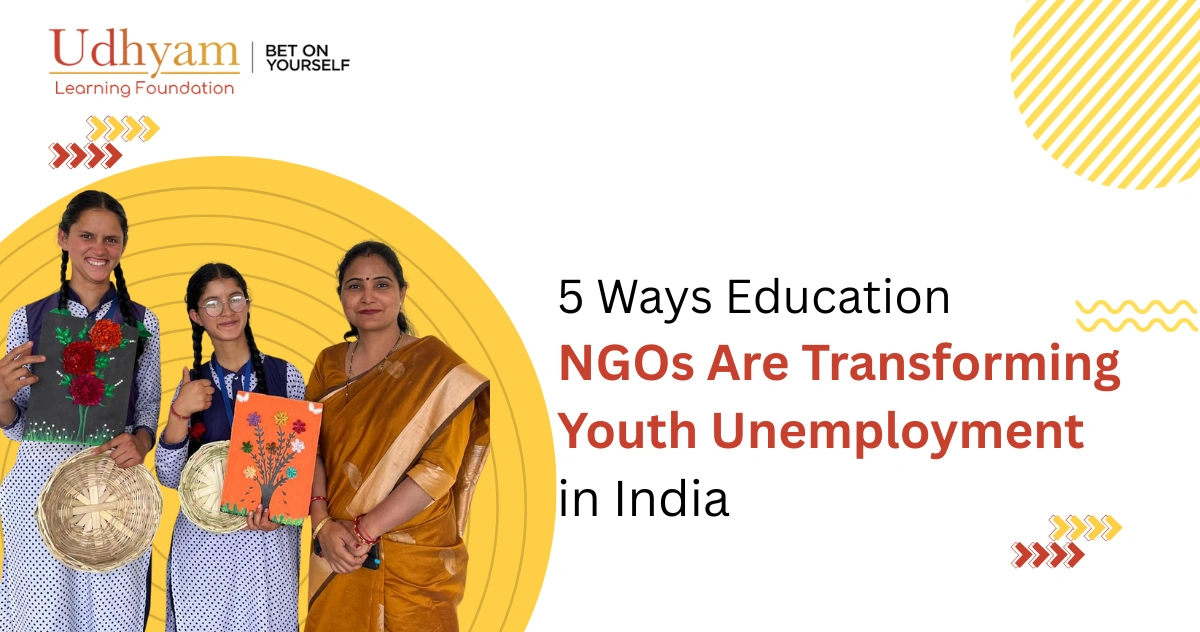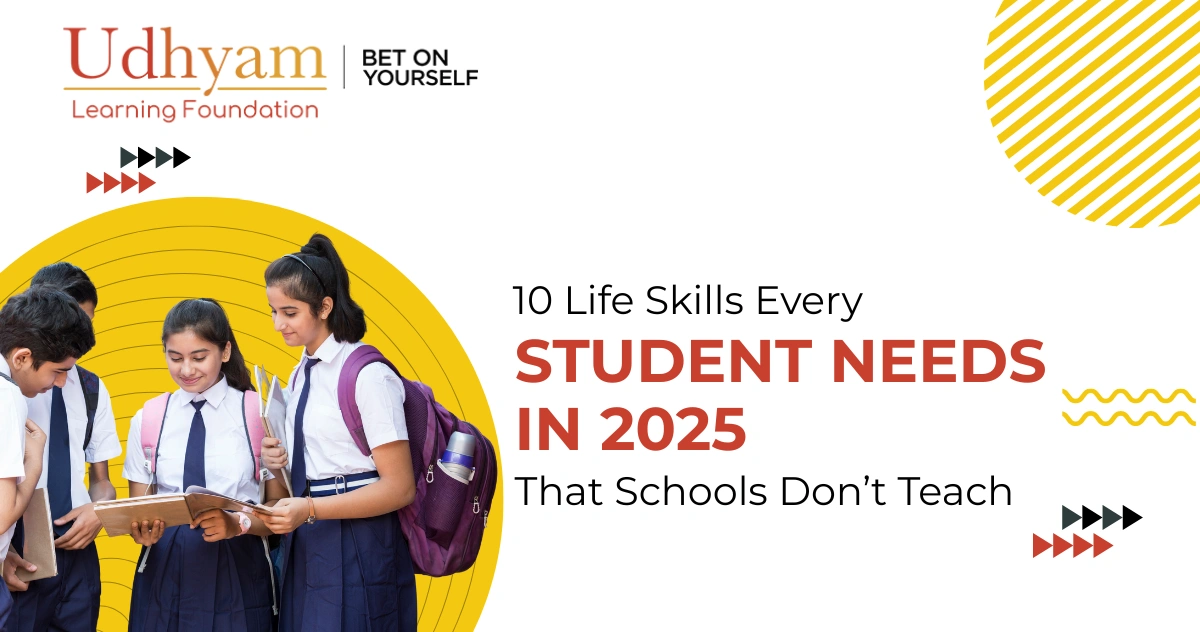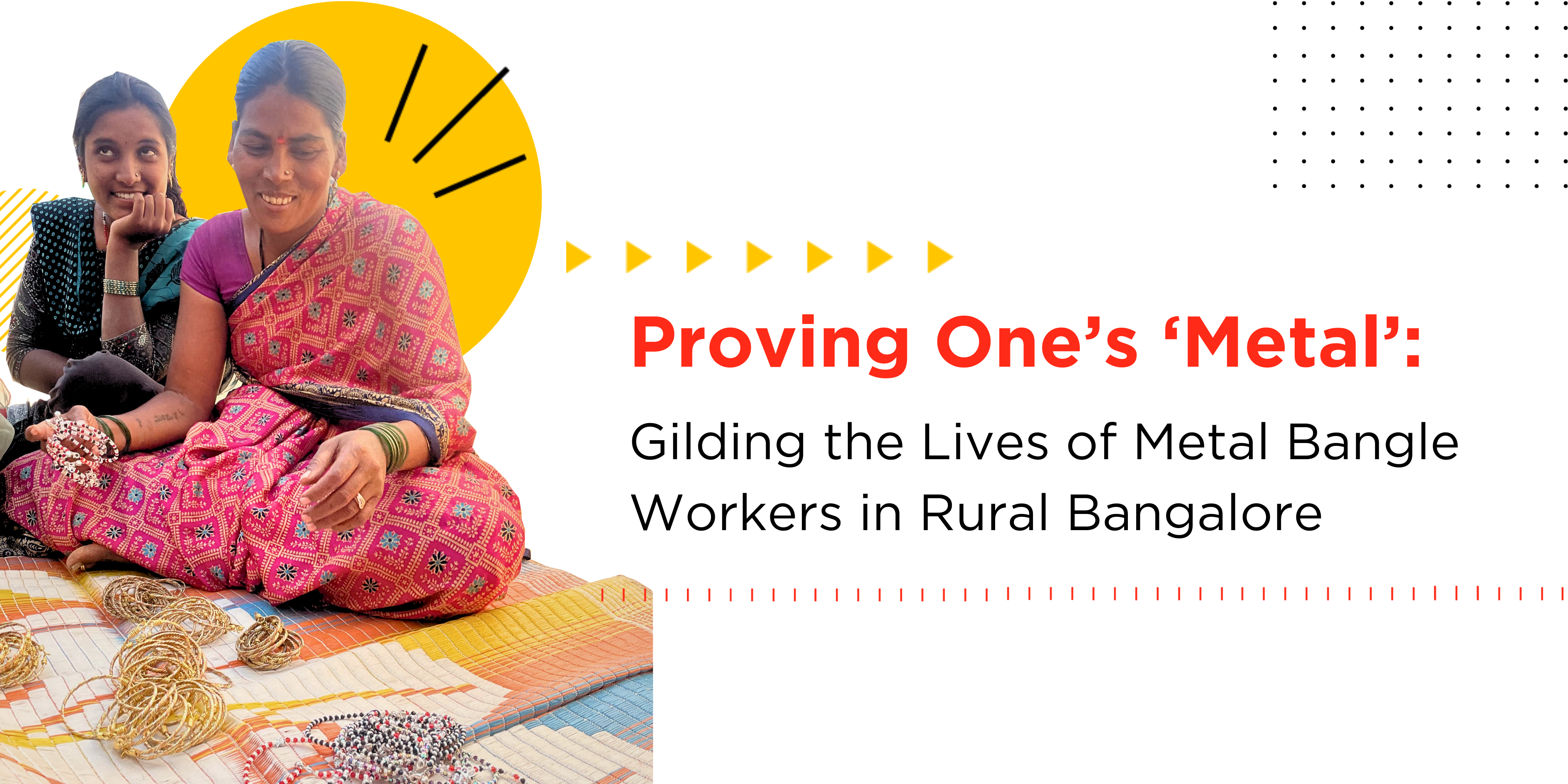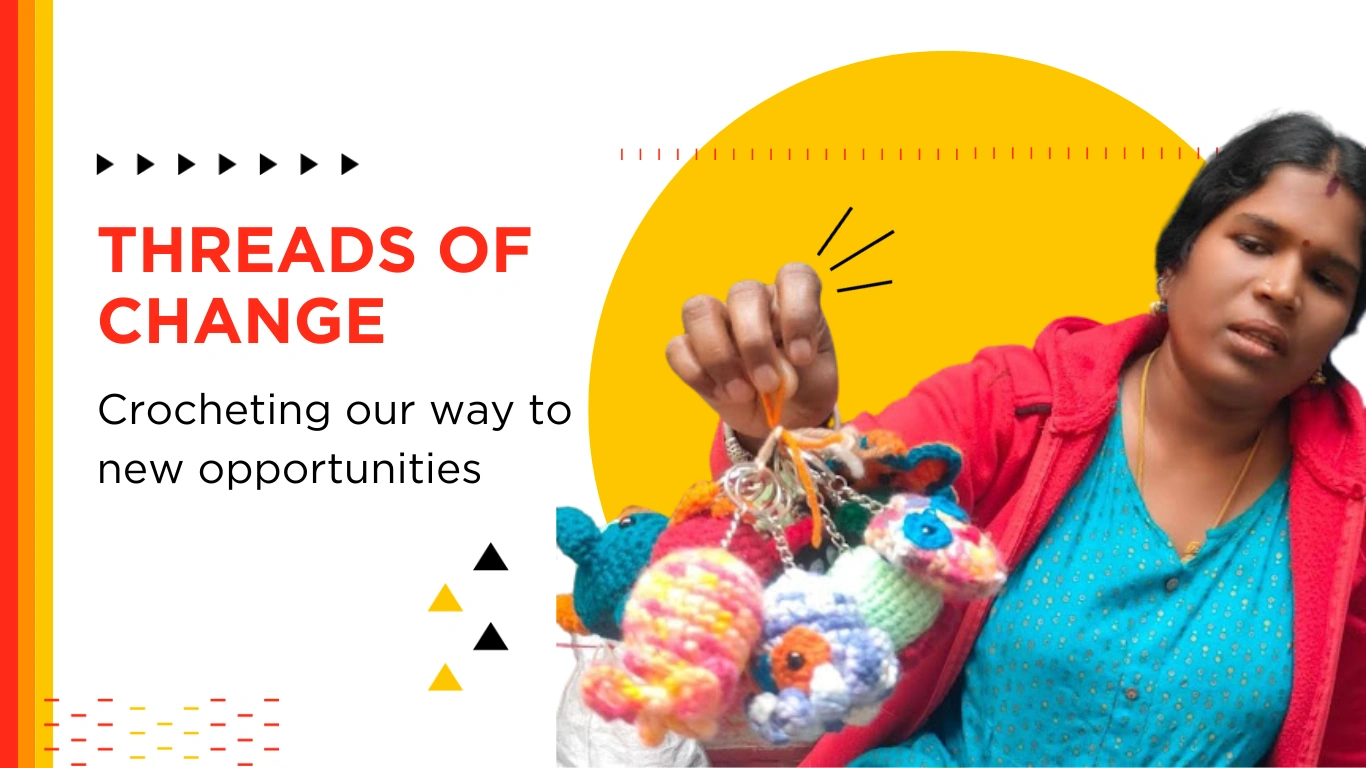What has made the human race the alpha species? Yes, it is our superior cognitive and physical abilities. But, equally important has been our leveraging of these abilities to develop life skills for students that have helped us conquer every age – from pre-historic times to today’s highly advanced, tech era. Skills are crucial, they help us survive and thrive, and research has increasingly shown the earlier we embrace skills, the greater our chances of reaching the pinnacle of achievement.
In its extensive work across 10 States in India, Udhyam Foundation has reached over 3 million students – equipping them with the tools required to unlock an entrepreneurial mindset. As a pioneering force in the space, the Foundation quickly understood that young students lack the critical life skills needed to develop an entrepreneurial mindset. Through its interactive programmes, Udhyam has gone beyond textbook learning, seeding skills that help young minds claim a bright future.
The Making Of MVPs
Over the past five years, Udhyam Foundation has identified the foundation values of an entrepreneurial mindset. It has learnt, through its far-reaching programmes, that this critical mindset becomes a reality when students possess a quiver of skills under these four broad values. They are:
- Ability to try new things
- Self-Awareness
- Grit
- Independence
Placing these values as cornerstones, we can then build critical life skills for students. Here are seven that lead to an entrepreneurial mindset:
Critical Thinking
An entrepreneurial mindset simply begins in the mind! Traditionally, in India, youth are compelled to acquire textbook knowledge. However, critical thinking encourages young students to go beyond the printed page and think for themselves. With critical thinking, you unpack the various facets of a topic and weigh out various factors before taking action or making up your mind. A key life skill for students, critical thinking can ensure an agile and open mind that can identify the strengths in a situation, approach challenges with curiosity and work with others to achieve the best results.
Problem-Solving
When critical thinking takes root, it opens up the doors for problem-solving too. A balanced mind can look at problems- whether in life or at work – and instead of feeling defeated by them can unpack and understand them. When doctors face an unknown condition or coders stumble upon a bug in their software or weavers can’t get a pattern right, it is important that they persevere and understand the source of the problem, test out solutions and forge new pathways. This leads to not just the advancement of the person and their craft but this is how humanity itself has progressed through the ages.
Resilience
Self-awareness and the ability to try new things show students that failure is an indispensable and important part of life. Without it, the mind and the psyche have no in-built defence that helps them tide over life’s many challenges. Failure and challenges also help build resilience – a precious life skill for students.
Resilience helps youth cope with a bad marks sheet or a rejection at a job interview or the heartbreak of seeing a dream turn into dust. It also pushes them to try and try again, assuring them that bad marks, a lousy interview or a dream gone awry is not a death sentence. And that success always belongs to the person who is willing to get up, dust themselves off and try again.
Leadership
Leaders are born, some say. But nothing can be further from the truth! Leaders are made and those with an entrepreneurial mindset grow into taking responsibility for themselves and others. When you think about what many workplaces and budding enterprises lack today, it is the lack of leadership that often derails the best of companies. When we nurture life skills for students and show them ways to build self-awareness and independence, we create leaders who walk with others and encourage them to reach for the greater good.
Communication
In a world that has whole-heartedly embraced technology and the digital domain, communication is everywhere. However, an entrepreneurial mindset knows the value of honest, open, inclusive and effective communication. When designing programmes that impart life skills for students, it is important to include every student as effective communication is a skill that every individual needs to possess. The ability to spell out your thoughts and even convince your peers to embrace your ideas plays an impactful role in workplaces, societies and in families.
Collaboration
Collaboration is closely linked to communication. When young children and students are nurtured to actively listen, communicate effectively, employ their emotional intelligence and foster a culture of respect – collaboration becomes easy. This, in turn, feeds into the entrepreneurial mindset and encourages young people to reach out, across boundaries and comfort zones to work with others. This life skill for students helps them realise at a very early age that nothing great or good is created in a vacuum by lone individuals. Apple is more than Steve Jobs, the government is much more than its Prime Minister, and Virat Kohli is a valuable member of a team – there are no wins till collaboration becomes the norm.
Adaptability
In a fast-paced, ever-changing world, adaptability is a non-negotiable life skill for students. In the recent past, during the COVID-19 pandemic, even schools and colleges had to adopt online classrooms in the face of a crisis. Cultivating adaptability in young, entrepreneurial minds prepares them for competitive workplaces where individuals have to adapt to changing roles, varied personalities on their teams, and changing organisational goals. When pursuing their entrepreneurial dreams, youth should also be able to quickly embrace the changing needs of the market, cope with setbacks and seek out-of-the-box solutions. Adaptability also helps people accept feedback and work towards growth.
Practising these seven skills leads to an entrepreneurial mindset and also creates other enviable skills, beliefs and behaviours. These include – creativity, networking, continuous learning, ownership and proactiveness. All of these skills come together to make for well-rounded individuals who can navigate the ups and downs of a career and a social life with elan, leading to greater successes for societies, nations and, ultimately, the human race.

